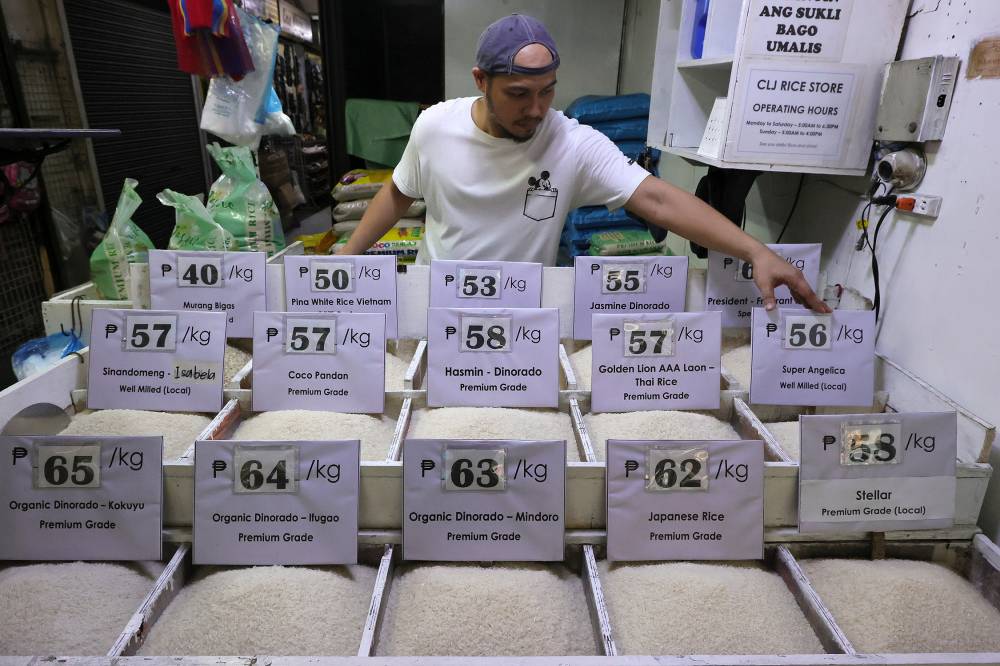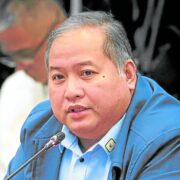Pinoys want to know gov’t steps on inflation

Controlling price inflation in the country remains the top national concern among Filipino adults, according to the latest “Ulat ng Bayan” survey released by Pulse Asia on Friday.
The survey, conducted from June 17 to June 24, found that 72 percent of Filipinos consider increases in the prices of basic commodities should be immediately addressed by the national administration.
It is the only issue, out of the 17 listed by the polling firm, that is regarded as an urgent national concern by the majority of Filipinos.
Increasing workers’ pay came in second at 44 percent, while about a third cited reducing poverty (32 percent) and creating more jobs (30 percent) as their major concerns.
The least national concern, on the other hand, was identified as preparing to face any kind of terrorism (2 percent) and changing the Constitution (1 percent).
Concern over inflation is high among those in Mindanao at 77 percent and Luzon outside Metro Manila at 74 percent. It is also relatively high in Metro Manila and the Visayas, at 67 percent and 66 percent, respectively. It is also high among socioeconomic classes, with Class E at 74 percent, Class D at 73 percent and Class ABC at 64 percent.
Of all urgent national concerns, inflation was also the only one cited by the majority of Filipinos at 57 percent as the issue they would like President Marcos to discuss or mention in his next State of the Nation Address (Sona).

A vendor waits for buyers at a rice stall in Marikina Public Market in Marikina City on Thursday, June 20, 2024. The Department of Agriculture (DA) intends to import 363,687 metric tons (MT) of rice to support a government program to sell ageing rice that is still of good quality to vulnerable sectors at a subsidized proce of P29 starting in July.
INQUIRER PHOTO / GRIG C. MONTEGRANDE
Widespread worry
This view is shared by bare to considerable majorities in all geographic areas (from 51 percent to 63 percent) as well as socioeconomic classes (from 58 percent to 66 percent).
Other issues Filipinos would like the President to discuss or mention during his third Sona include the issues of improving the national economy (36 percent), creating more jobs or livelihoods (35 percent), and the actions to be taken to stop the incursion of other countries into Philippine territory in the West Philippine Sea (31 percent).
The least topics or issues the respondents want the President to address during the Sona are changing the Constitution (5 percent), restoring the people’s trust in the government and its officials (12 percent) and restoring unity among national officials (13 percent).
Meanwhile, 32 percent of Filipinos believe the national administration has fulfilled its promise to boost tourism in the country.
Around a quarter of adults believe that the administration’s promises to strengthen the country’s infrastructure (26 percent) and defend national sovereignty (24 percent) have been fulfilled.
Pulse Asia also asked the respondents to rate the administration’s performance on selected national issues.
OK on OFWs, calamities
According to the survey results, the Marcos administration scored majority approval ratings only on protecting the welfare of overseas Filipino workers (OFWs) (70 percent) and responding to the needs of areas affected by the calamities (64 percent).
Approval is the plurality sentiment toward the latter’s handling issues, including defending national territorial integrity (48 percent approval score), promoting peace and fighting criminality (both 47 percent approval score).
Disapproval for the incumbent administration’s handling of four issues becomes more notable from March to June 2024. These issues are controlling inflation (76 percent disapproval score), reducing poverty (51 percent disapproval score), increasing workers’ pay and fighting graft and corruption in government (both at 39 percent disapproval score).
Pulse Asia interviewed 2,400 adult respondents nationwide and used a margin of error of plus-or-minus two percentage points at the 95 percent confidence level.





















